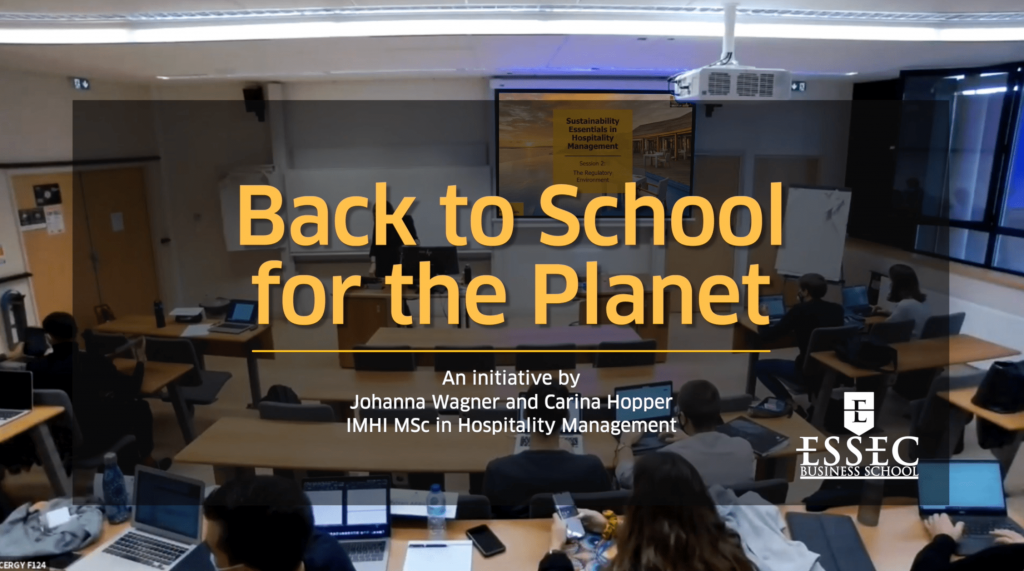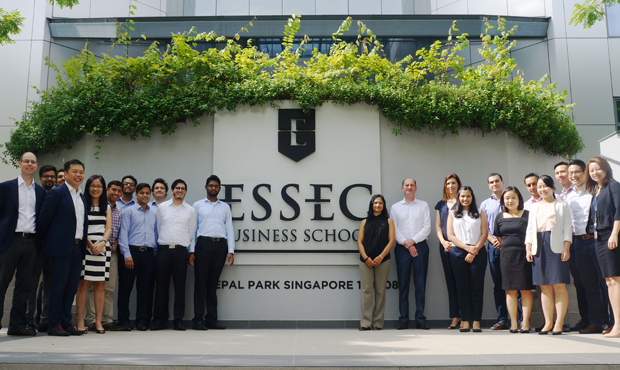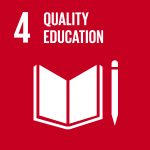Esta web utiliza cookies para que podamos ofrecerte la mejor experiencia de usuario posible. La información de las cookies se almacena en tu navegador y realiza funciones tales como reconocerte cuando vuelves a nuestra web o ayudar a nuestro equipo a comprender qué secciones de la web encuentras más interesantes y útiles.
Back to School for the Planet (BTSP) Piloted at ESSEC Business School
Description
Institution
Back to School for the Planet

Organizations/areas of the university involved
ESSEC Business School
Country
france
BTSP transforms the learning experience by bringing alumni back to the classroom alongside current students to update their knowledge and competencies through newly introduced sustainability courses.
Dedicated to fostering a new learning environment for students and alumni alike and offering lifelong qualitative education to alumni, Back to School for the Planet (BTSP) is a French association providing guidance and tools for higher education programs to help them open their new sustainability-focused classes to their alumni. Its objective is to accelerate change in professional practices by updating the competencies of those who have or will soon have high-level responsibilities in companies and institutions. BTSP creates an opportunity for higher education institutions to develop new bonds with alumni while updating their skills and providing an invaluable experience for current students, who benefit from classroom interactions and knowledge sharing with alumni of their program, who are able to discuss current workplace obstacles to sustainable development. The BTSP initiative was piloted in autumn 2020 in the MSc in Hospitality Management at ESSEC Business School, Paris, with the participation of:
– 2 sustainability-focused courses (Sustainability Essentials in Hospitality Management and Sustainable Finance and Law for Hospitality Managers) taught online;
– 3 lecturers;
– 7 alumni program; and
– 61 full-time enrolled students.
The following testimonial from a participating student summarizes the perception and high potential of this initiative: “I probably wouldn’t have made the decision to take a sustainability course if it hadn’t been offered by the program from which I graduated. It was easy to enroll and required no financial investment. ” Following the success of the pilot, BTSP was registered as a non-profit association in January 2021 with the aim of encouraging and supporting the good practice in as many schools as possible.
Results and impact measured or expected
In feedback surveys, students and lecturers felt that the classroom discussions were enriched by the presence of alumni already experienced in the field, while alumni (surveyed both immediately and four months after the courses) shared the impacts that the experience had on them, including:
– “Thanks to this course, I realized that there are many options at the disposal of anyone, any company or any institution willing to commit to sustainability goals. I have become more questioning, more demanding as well. ”
-“ It had an impact on both my personal and professional decisions. The main impact is the search for information. I now go beyond companies’ ESG sections on their website and try to find evidence, question initiatives, and make more efforts to identify best practices in industries I am not familiar with.”
Connection with the SDG framework
The UN’s Sustainable Development Goal 4 includes the promotion of lifelong learning: “ensure inclusive and equitable quality education and promote lifelong learning opportunities for all”. Back to School for the Planet provides a model for the implementation of SDG4 by bringing alumni into the classroom alongside current students, adding an entirely new dimension to active learning and community building. The aim is to update the skills and competencies of professionals in alignment with all 17 SDGs by facilitating their access to relevant sustainability courses. By focusing on alumni, BTSP wants to contribute to a change among individuals with decision-making power and a scope of action so as to accelerate the transition. This model is easy and inexpensive to implement and is especially relevant in a time of economic difficulties such as the economic crisis created by the Covid-19 pandemic.
Barriers and follow up
Potential barriers that have been identified in putting into place the BTSP initiative include:
1) the willingness of program leaders to sign off on offering new sustainability courses to alumni free of charge;
2) the willingness of faculty to accept alumni into their classrooms alongside currently enrolled students and
3) the lack of adaptation of many course timetables to the schedules of working professionals.
Regarding these barriers, BTSP is a digitally native initiative designed to keep added costs to a minimum while allowing easy access for alumni. The administrative tasks involved with adding alumni to an already virtual or hybrid course can in many cases be carried out with ease by the program team or teaching staff handling the course.
Transferability of the initiative
BTSP is highly transferable thanks to the widespread transition to online and hybrid education seen in many regions across the world. It has low incremental costs, as adding a limited number of alumni to an already established virtual classroom requires minimal investment. Programs without online learning capabilities can invite alumni to participate in their new sustainability-focused courses in person. Once the initiative has been piloted with new sustainability courses in one program, it can be easily scaled up within the school, providing an example of good practice and feasibility for other programs. The initiative does require participating programs to have incorporated new courses on sustainability that have not yet been taken by all alumni, something that is becoming more and more common given the rise in ESD in recent years.
Education 4 SDG funciona gracias a WordPress


